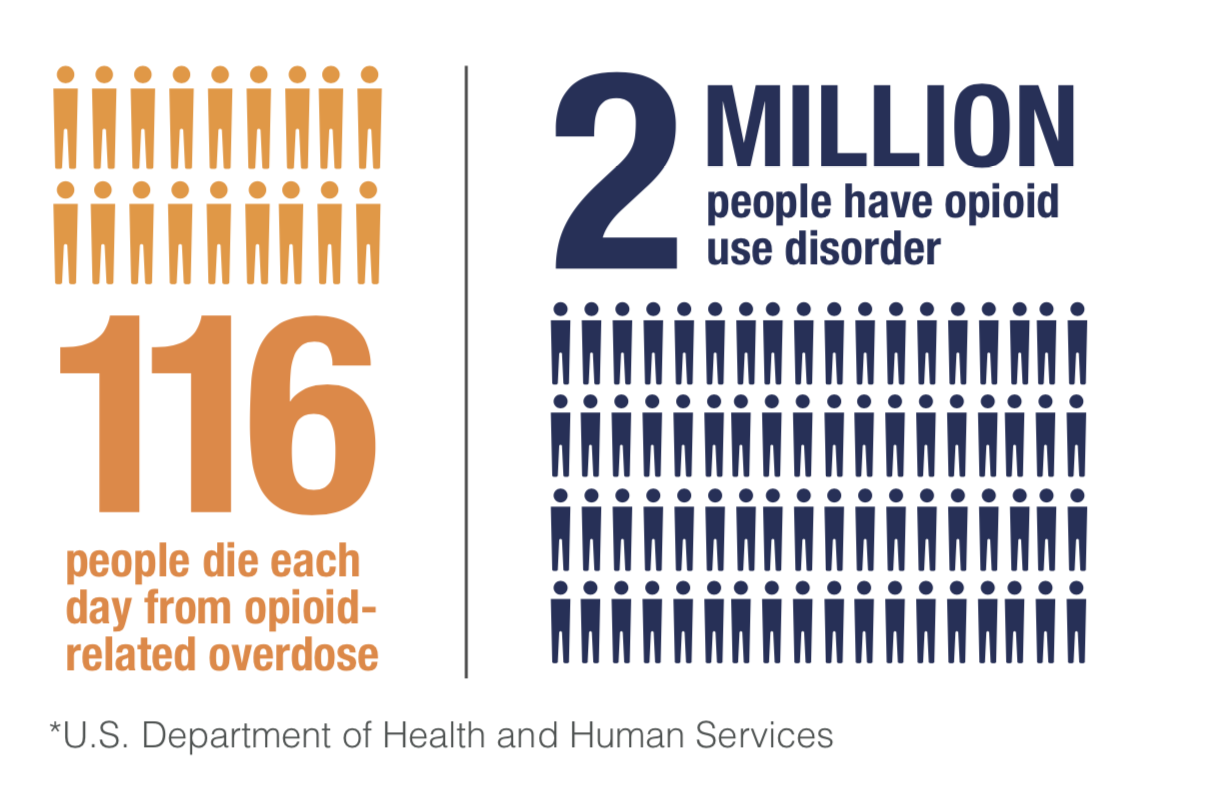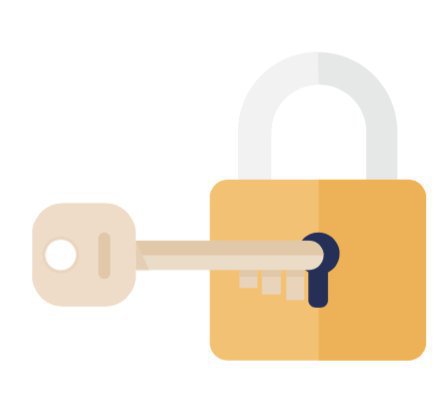
• We follow well-defined, nationally endorsed policies and procedures and utilize, software to track controlled substances in inventory across every Kinney pharmacy.
• We also track trends in drug usage that may help to identify potential abuse.
• Kinney utilizes electronic prescribing to help decrease fraudulent prescriptions and to increase access to legitimate controlled substance.
• Just like prescribers, Kinney participates in the state-regulated prescription drug monitoring programs.
The short answer is everyone. Each and every person can become addicted to opioids. It is therefore very important to take your medications only as prescribed.

To answer that, we need to understand how opioids work. Opioids work on specific receptors in the brain, spinal cord and other organs in the body.
Think of the receptor in the brain as a lock and the opioid as a key. They fit together to turn off the messages of pain to the brain.

When an opioid is taken for a long period of time, the brain begins to adapt and make more opioid receptors, which makes the body crave the drug, regardless of negative consequences. More receptors means higher doses are needed to get the same effect. Once the body becomes dependent on the opioid, a person may find it hard to stop taking it and withdrawal symptoms can occur.
Find an addiction treatment specialist
• American Society of Addiction Medicine
• American Academy of Addiction Psychiatry
• 1-800-662-HELP (A free service thought the US Department of Health and Human Services)
• For veterans, visit the US Dept of Veteran Affairs Substance Use Disorder Program Locater Online

• History of mental illness or alcohol/substance abuse.
• Overlapping prescriptions from multiple providers and pharmacies.
• High daily doses of opioids or using long-acting opioids for acute pain.
• Negative changes in work performance or grades
• Skipping school, classes or work
• Dropping longtime friends
• Loss of interest in usual activities
• Changes in general behavior or mood
• Changes in sleep and/or eating habits
Recognizing an Overdose • Loss of consciousness
• Unresponsive
• Awake, but unable to talk
• Breathing is very slow and shallow
• Choking sounds, or snore-like gurgling noise
• Face is very pale or clammy
• Fingernails and lips turn blue
• Heartbeat is slow or undetectable
• Assess the signs
• Try to wake the person up
• Call 911
• Administer CPR as needed
• Give Naloxone (Narcan®)
Naloxone (Narcan®) can mean the difference between life and death. It can be given by someone without a medical background as long as they have proper training.
Clean out your medicine cabinet
• Do not throw any medication in the trash or flush down the toilet
• Dispose of medications by bringing them to a place authorized to dispose of medications such as Kinney Drugs
Discussion Starters
• Keep the lines of communication open
• Be patient and keep initiating conversations
Take opioids as prescribed
• Take all medication according to the directions on the vial
• Keep an open dialogue with your prescriber and pharmacist
• Take only as long as you need the medication
Depending on the type of pain other, non-opioid options may be better
• Acetaminophen or ibuprofen
• Topical agents like lidocaine
• Exercise therapy
• Medications for depression or seizures used for nerve pain
• Steroid injections
• Acupuncture
• Massage
Kinney Drugs hosts Medicine Collection Days the last Saturday of every month. Simply bring your unwanted non-controlled prescriptions and over-the-counter medications to any Kinney Drugs pharmacy, and we will dispose of them in a safe, environmentally friendly manner. Non-controlled medicine is accepted during regular pharmacy hours in all Kinney locations except Barton, VT. The last Saturday of April and October, Kinney partners with the Drug Enforcement Administration to offer CONTROLLED substance Medication Collection Days. On those days, we accept all items on the above list as well as Controlled Prescriptions (e.g., Oxycontin, Percocet, Hydrocodone, etc.).
• No prescription needed
• We offer the NCAP copay assistance program in our NY stores.
Lastly, it is important to note that your genetics can influence how your body responds to a drug. In our Vermont stores, we offer genetic testing that can provide prescribers and patients information on how patients may respond to certain opioid medications and dose the medication accordingly.